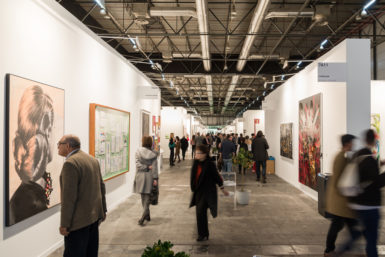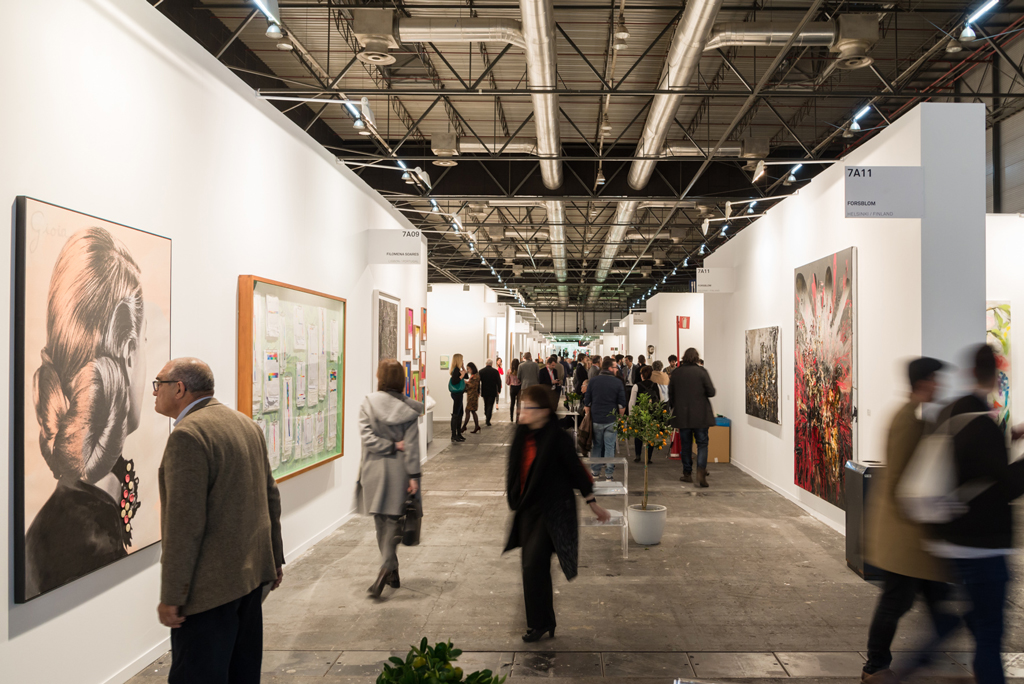[ad_1]

The 2018 edition of ARCO Madrid.
ALEJANDRO CAYETANO
A lower court in Madrid issued a ruling in November against the Spanish art fair ARCO Madrid, which will open this week in the country’s capital city, saying that its decision-making process for selecting exhibitors is neither transparent nor equal. The fair has appealed the decision, which was first reported by the Spanish newspaper El País.
At issue is the amount of information the fair has to provide to potential exhibitors about its private selection process. In an art market increasingly defined by leading art fairs, participation in such high-profile events can significantly affect a gallery’s bottom line, and their selection criteria are often opaque.
Quoting from the decision, El País reported that the judge ruled, “ ‘It is evident’ that [the fair] did not obey the ‘principle of transparency in selection’ that it must govern a public organization like Ifema (whose majority control is in the hands of the Community and the City Council of Madrid).”
In a statement sent to El País, ARCO’s organizers countered that “the regulations [governing hiring and recruitment for public entities] do not apply to the selection of galleries.” They added that the fair was “impeccable” in its selection process.
The lawsuit was filed by Ramón García Alcaraz after his Madrid-based gallery My Name’s Lolita Art was not selected to participate in the 2016 edition of ARCO Madrid. For that iteration of the fair, 258 galleries applied, of which 163 were selected to participate. My Name’s Lolita Art was ranked by the selection committee at 247 and thus was not invited to show at the fair. The gallery had participated in ARCO Madrid from 1990 until 2007. It was first rejected from the fair the following year. After participating in other international fairs, and gallery artist Paco Pomet’s involvement in projects with Banksy and Takashi Murakami, García Alcaraz said, he decided once again to apply to exhibit at the 2016 edition of ARCO Madrid. His application was rejected.
According to El País, My Name’s Lolita has said that, when it asked for more information about the committee’s decision, specifically what had led to its rejection, it was rebuffed. According to the ruling, ARCO Madrid said it “was not possible to know the score awarded by each member of the [selection] committee,” which can include as many as 14 people who vote independently on each proposal for a given year. In its lawsuit, My Name’s Lolita Art deemed the fair’s decision-making to be “arbitrary and discriminatory.”
“My legal actions have never had any financial interest,” García Alcaraz told ARTnews in an email. “My intention was instead to provoke a change toward transparency and fairness in the selection process for the fair so that the best of Spanish artists can be exhibited in the most important art fair of their country.”
In his ruling, the judge, who pointed to a similar decision in 2001 against the 1999 edition of the fair, wrote that “with the scant information given to the applicant, it is impossible for them to know if their project has been judged fairly.” The judge continued that, because select international galleries are automatically accepted to participate in the fair if they request a spot, and thus do not have to undergo the selection committee, he found there to be unequal treatment against, in particular, Spanish galleries.
In a statement sent to ARTnews, Ifema, which maintains that it “expressly rejects” the November ruling, said, “In our opinion, the selection process respects all the principles and values of this institution. If we detect that the protection of such principles can be further increased, we are open to incorporating new additional elements that reinforce them; in any case, the selection process for 2019 was already carried out at the moment in which we were notified of the judgment.”
The statement continues that Ifema does not believe “the transparency to be violated” but that it will review this situation for future editions of the fair. However, it said, “this will not affect, of course, the overall score of each proposal, which is what determines the selection or not of [any given] gallery” for inclusion in the fair.
[ad_2]
Source link

